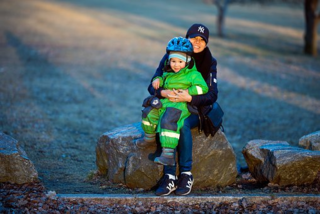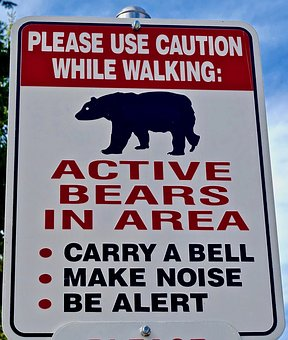Relationships
52 Ways to Show I Love You—Protecting
Protecting from outer dangers, inner threats, and even accidents can show love.
Posted June 11, 2017

From the time a child is born, adults are aware that protecting is an essential expression of love. I remember my step-son, who lived in a city at the time, renting a car to visit us (in the country) for the first time after his daughter was born. He insured that her car seat was properly installed, her eyes were shielded from the glare of the sun, and her view out the window was unobstructed. He wanted to protect her from dangers from without (another car, the sun) and from within (insufficient stimulation). Attuned to her needs and reactions, his love came through in his attentive behavior.
As children grow, they need to assume ever more responsibility for their own well-being. Nonetheless, in adult life, we still need protection. Finding it from and providing it to those we love can create a sense of safety and partnership as long as we understand that their actions and concerns (or ours) spring from desires to help and not to interfere, criticize, or “know better.”
What is protecting and how can it show love?
- “Protecting” that is motivated by love means keeping the loved one safe from outside dangers, inside dangers, and accidents. My husband’s willingness to edit my writing perfectly describes all three. Without his protecting (that is, review and possible editing), I am at risk of using words that could easily be taken the wrong way and, through misunderstanding, might hurt rather than help someone. He thus protects me from causing unintended pain to people I do not know. By editing my work, he also protects me from my own impulsivity, a desire to share my enthusiasm before it is fully ready to go out into the world. And, increasingly important to me, he protects me from those accidents that can be caused by my computer—formatting, spelling, a poorly placed picture—all of which could alter what I mean to say.
How do we express love through protecting?
- We define and respect boundaries. Once a person is no longer an infant, boundaries become essential to love relationships. The older the participants, the longer the relationship, the more important these boundaries become. They keep us safe from losing our internal compass. Being able to define when we are open to protection by another and when we need to learn through our own efforts (and sometimes errors) is a privilege of adulthood. Being able to trust that someone we love will respect the boundaries, crossing them only when invited and backing off when unwanted, assures that we can maintain our own compass that directs our behavior.
-
 Source: MemoryCatcher/Pixabay
Source: MemoryCatcher/PixabayWe intervene in the event of imminent danger. Boundaries might be overridden in times of imminent danger. We intervene to alert someone to the path of a car he or she does not see, setting aside our own preoccupations and activities when we spot real risk. An internal threat, when he or she might be tempted to act without thinking, out of anger or frustration or fear, can also require intervention if the potential consequences of a misstep are serious.
- We do not protect those we love from discovering their own truths. To do so would be to enable them, to encourage them to live in denial of what they need to discover.
- We provide nudges toward better choices. Most of the time, the consequences of our behavior are not all that important! It does not matter whether we decide to order salmon or tilapia for dinner, mint or espresso chip ice cream for dessert. It might, however, matter if you want to order a big steak or a hot fudge sundae and have been warned of gall bladder or cholesterol issues. Adults are in command of what they put into their bodies from the environment—whether it is a diet for the body or for the mind. But research has shown that a gentle nudge in the “better choice” direction can help.
- We help someone choose more wisely, less impulsively. I stopped asking my husband to slow down on the highway when he began noticing how I cling to the armrest when I am frightened by his speed. My nudge is a subtler type of protecting, but it is natural and automatic and it works, encouraging him to slow down and protect us both. We are susceptible to persuasion from ads, commercials, and other publicity materials that try to kidnap our attention as well as to unconscious preferences derived from childhood experiences that had been left unexamined. Sometimes we need help in remaining safe from these influences.

Why does protecting show love?
- It reassures us that we are not alone, that other people care about our well-being.
- It promises that someone else “has your back” when bad outcomes are likely if you do not make more conscious choices.
- It acknowledges that lessons exist to provide learning. Sometimes what we need is to NOT be protected! But that is the topic for another time.
When was the last time you reached out to protect someone you love? What was his or her response? How did you feel? If you were rebuffed, were you able to explore the situation together until you both understood where the communication went astray? Think of a time when you felt protected. What was the danger? The protection? Your response?
Copyright 2017 Roni Beth Tower
Visit me at www.miracleatmidlife.com


